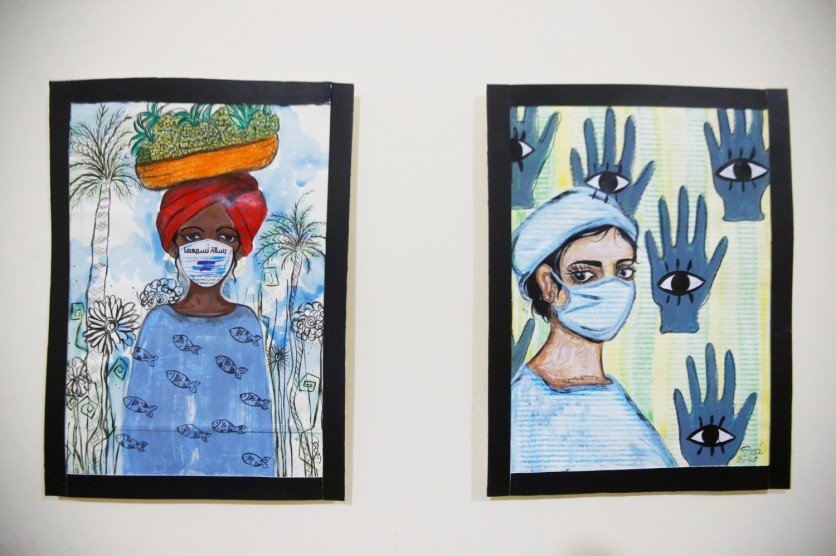Imagine you've been diagnosed as COVID-19 positive. Health officials begin touch tracing to comprise infections, asking you to identify people with whom you've been in near touch. The apparent humans come to mind - your family, your coworkers, or even friends. What about the woman ahead of you in line last week on the pharmacy? Or the person packing your groceries? Or any of the other strangers you could have come near to in the previous 14 days?

Various researchers and other experts from many institutions are developing a feature that augments "manual" contact tracing by public health officials while maintaining the privacy of all individuals. The system relies on short-range Bluetooth indicators emitted from people's smartphones. These indicators represent random strings of numbers, likened to "chirps" that other nearby smartphones can remember hearing.
ALSO READ : COVID-19 Update: France Is Officially Working on 'StopCOVID' Contact-Tracing App, Minister Says
If someone tests positive, they could add the list of chirps their smartphone has placed in the past 14 days to a database. Other people can then test the database to look if any of these chirps suit those picked up by their phones. If there's a match, the person would be notified that they might be exposed to the virus and will include facts from public health government on next steps to take. Vitally, this entire system is carried out while retaining the privacy of people who are COVID-19 positive and people wishing to check if they have been in contact with an infected person.
However, scientists claim Bluetooth apps are horrible in discovering new cases of COVID-19. Here's why.
Privacy matters
Some countries had been successful at containing the spread of COVID-19 by using smartphone-based methods to conduct touch tracing. But the researchers note these tactics have not always covered an individual's privacy.
Privacy issues have limited the usage of location information for anti-coronavirus efforts worldwide. This feature has drawn few complaints in Taiwan, according to Reuters. The country rolled out a smartphone-based "digital fence" that makes use of location-tracking to make sure people that are quarantined stay in their homes.
The system monitors phone indicators to alert police and local officials if the person in quarantine moves away from their houses or turns off mobile phones. Authorities will contact or visit folks who cause an alert within 15 minutes.
The woman, who recognized herself as Xiaomei, told Reuters she was scolded by a nearby official after failing to pick up a phone call in the morning while she was asleep.
"It's creepy that the government is teaming up with telecommunications companies to track our phones," said a flight attendant in Taipei who was put under 14-day quarantine after returning from Europe in mid-March.
South Korea has also implemented apps that notify officials if a diagnosed person has left their home. The authorities also tap into people's GPS data to accurately pinpoint where they've been.
A report from Atlantic said the government uses several sources, including cellphone-location data, CCTV, and credit-card records, to reveal citizens' activity broadly.
When anyone tests positive, local governments can ship out a flood warning that shows the individual's full name, gender, age, district of residence, and credit-card history. The notice would also include a minute-to-minute document of the person's whereabouts.
"In some districts, public information includes which rooms of a building the person was in when they visited a toilet, and whether or not they wore a mask," a reporter for Nature wrote.
Expect several large numbers of false positives
Ryan Calo, a University of Washington law professor who studies privacy, told NBC News the entire idea will not work. He added software can't solve what's primarily a medical emergency.
"It's just not plausible. This is a serious emergency we're in," Calo said. He explained an app could fail in multiple ways, even if it's designed well.
"For example, a prankster could go to numerous grocery stores and then sign up for the app as a false positive to cause trouble, sparking unnecessary panic," Calo added.
Dr. Farzad Mostashari, the former national coordinator for health information technology at the Department of Health and Human Services, recently posted a Twitter thread expressing skepticism over Bluetooth-based contact tracing.
ALSO READ : COVID-19: False Negative Coronavirus Tests Could Be Due to How Samples Are Being Collected, Experts Say
To further explain the thread, Mostashari told The Verge your Bluetooth and your friend's Bluetooth might notify each other even if you're more than six feet away.
"You could be through the wall from me in an apartment, and it could ping that we're having a proximity event. You could be on a different floor of the building, and it could [notify]," Mostashari added.
What should Silicon Valley and the government do?
Public health specialists had been enthusiastic with efforts from Facebook and Google to apply aggregated, anonymized records to show movement patterns.
Apple's COVID-19 screening device and Facebook's collaboration with Carnegie Mellon University had encouraged users to self-document symptoms - to the university, not to Facebook.
The public health infrastructure, according to The Verge, has a lot of practice with contact tracing, thanks to the help of sexually transmitted infections. Come down with HIV, chlamydia, or gonorrhea, and an excellent county health organization will work with you to contact every person you can have contacted since becoming infected.
ⓒ 2025 TECHTIMES.com All rights reserved. Do not reproduce without permission.




